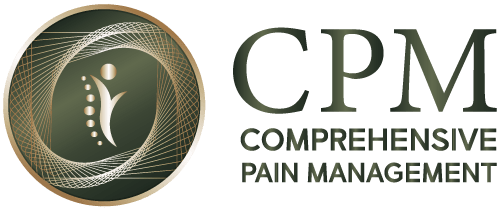8841 East Bell Road, Suite 101, Scottsdale, AZ 85260 | Rate: ★★★★★
Degenerative Disc Disease Treatments Phoenix
Back pain can make daily life harder. For many people, the cause is degenerative disc disease. This happens when the soft discs in your spine start to break down. At the Comprehensive Pain Management clinic, we offer advanced degenerative disc disease treatments Phoenix. Our goal is to reduce pain, protect your spine, and help you move more freely.
What is Degenerative Disc Disease?
Degenerative disc disease is not an infection or cancer. It means the discs in your spine are wearing out. These discs act like cushions between your spine bones. Over time, they lose water, shrink, and can crack. This can put pressure on nerves, cause your spine bones to rub together, and create the need for degenerative disc disease treatments Phoenix.
Degenerative Disc Disease Symptoms
- Pain in the back or neck that may come and go
- Pain that feels worse when bending, twisting, or lifting
- Stiffness or tight muscles in the back
- Pain that travels down your arms or legs
- Tingling or numbness in hands, arms, legs, or feet
- Weakness in the arms or legs
New Treatments for Degenerative Disc Disease in Phoenix
Comprehensive Pain Management uses safe and advanced options to manage pain and improve movement. Our degenerative disc disease treatments Phoenix patients choose include:
Regenerative Medicine
It uses special injections made from your body’s healing cells. These cells stimulate tissue repair in the damaged areas of your spine, reduce inflammation, and promote long-term healing.
Epidural Injections
It delivers anti-inflammatory medicine directly into the space around irritated spinal nerves. This reduces swelling and blocks pain signals from traveling to the brain.
Radiofrequency Ablation
It sends controlled heat through a thin needle to the nerve fibers that are causing pain. The heat disrupts the nerve’s ability to send pain signals, providing longer-lasting relief.
Trigger Point Injections
It places medicine directly into tight, knotted muscles. This relaxes the muscle, restores normal blood flow, and eases pressure on nearby nerves.
What Causes Degenerative Disc Disease?
- Natural aging and daily wear on the spine
- Loss of water in the discs
- Cracks or tears in the disc surface
- Bone spurs pressing on nerves
- Injury to the spine
- Heavy or repetitive lifting over time
- Smoking, which can reduce blood flow to discs
- Family history of spine problems
How is Degenerative Disc Disease Diagnosed?
We start by learning about your symptoms and checking your spine. We may use:
- X-rays to see disc space and bone changes
- MRI scans to see soft tissue, discs, and nerves in detail
Best Degenerative Disc Disease Treatments Phoenix
You don’t have to live with constant back pain. Dr. James KellerShabrokh and our skilled team offer super effective degenerative disc disease treatments Phoenix. We focus on proven methods, personal care, and long-term results.
Schedule a visit today and start moving toward relief.
FAQs about Degenerative Disc Disease Treatments Phoenix
What is the life expectancy with degenerative disc disease?
It does not shorten your life, but it can affect how you move.
What is the ICD 10 code degenerative disc disease?
It is M51.3 for the lower back and M50.3 for the neck.
How to cure my degenerative disc disease in Phoenix?
There is no complete cure, but degenerative disc disease treatments Phoenix can reduce pain and improve movement.
How to prevent degenerative disc disease?
Stay active, keep your posture good, strengthen your core, and maintain a healthy weight.
Can you golf with degenerative disc disease?
Yes, with care, good form, and exercises that support your spine.
Who is the best doctor for degenerative disc disease?
Dr. James KellerShabrokh at Comprehensive Pain Management offers expert degenerative disc disease treatments Phoenix patients recommend.
Can you fly with degenerative disc disease?
Yes, but use a seat cushion, stand to stretch, and lift luggage carefully.
Can I go to the gym with degenerative disc disease?
Yes, choose low-impact exercises and avoid heavy bending or lifting without guidance.
Dr. James KellerShabrokh
Dr. James KellerShabrokh is a board-certified specialist in Physical Medicine and Rehabilitation, focusing on spine, joint, muscle, and nerve injuries. He combines rehabilitative care, minimally invasive procedures, and preventive strategies to restore function, improve mobility, and provide long-term pain relief.
